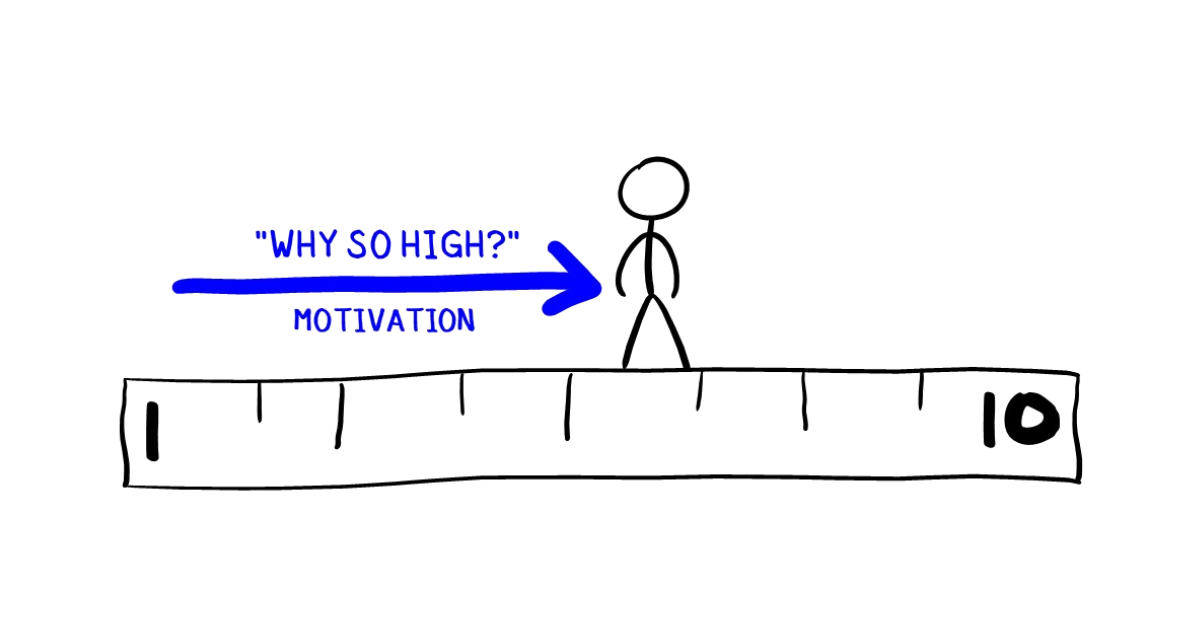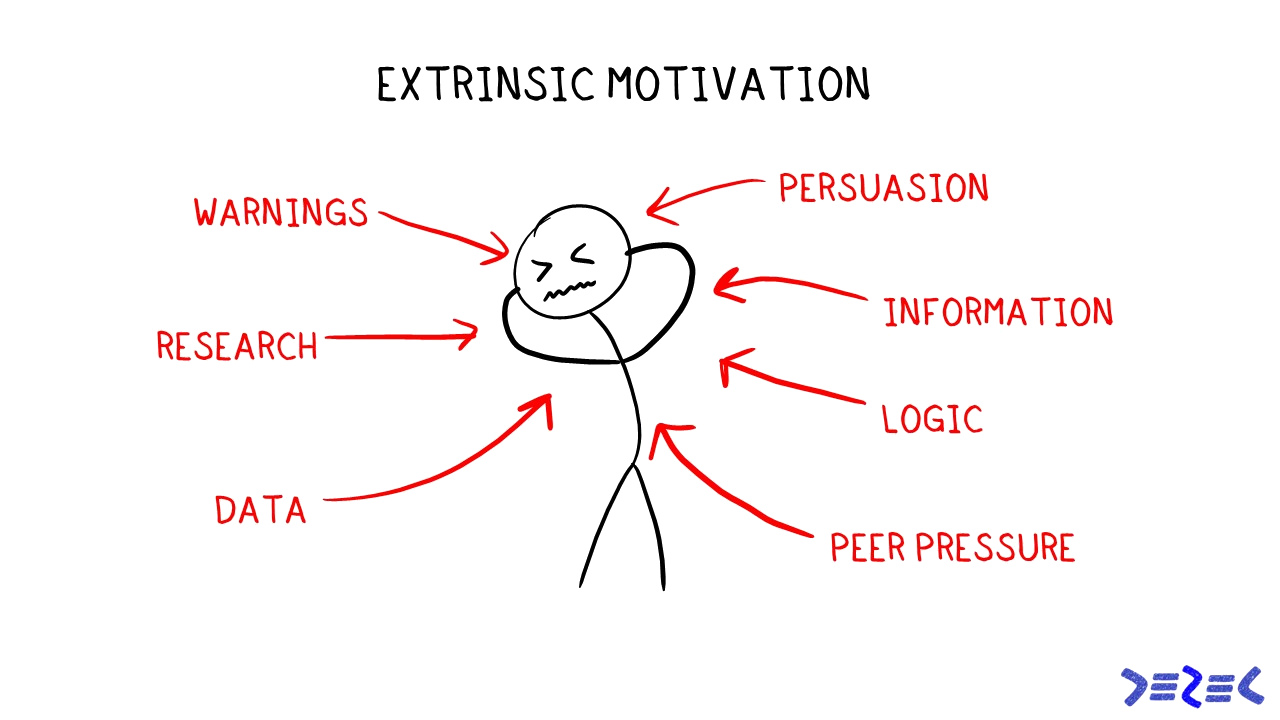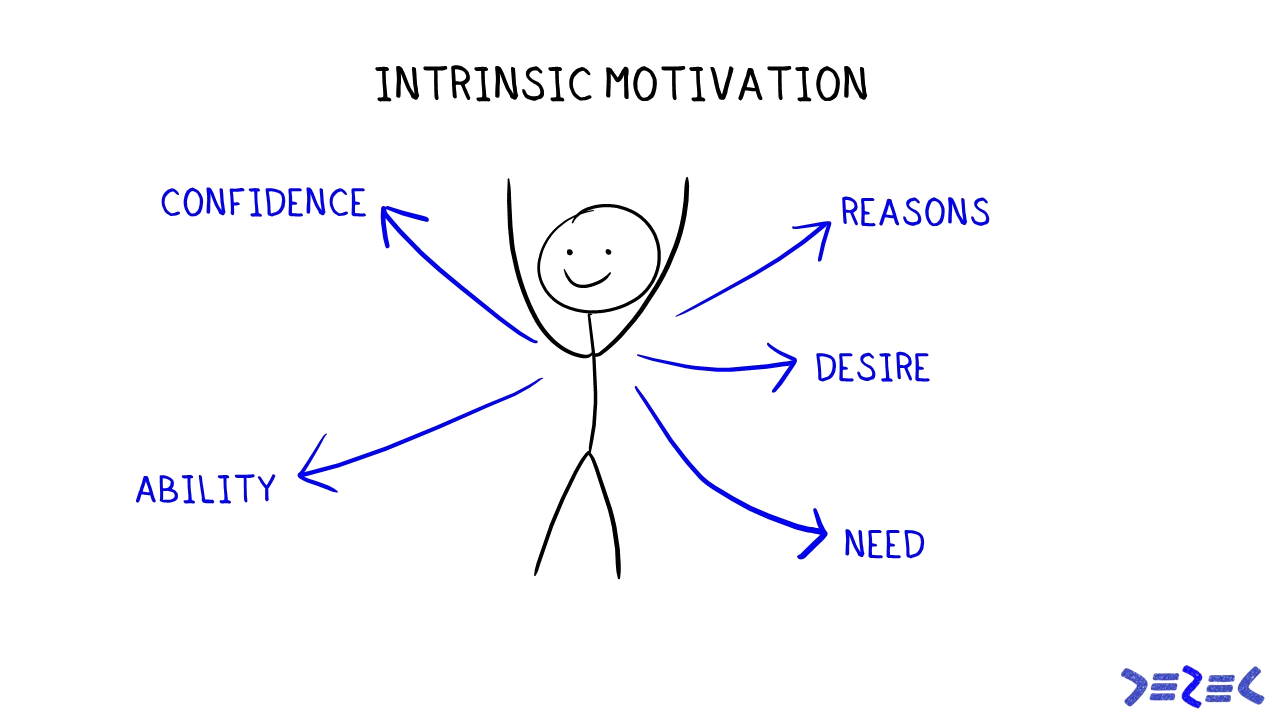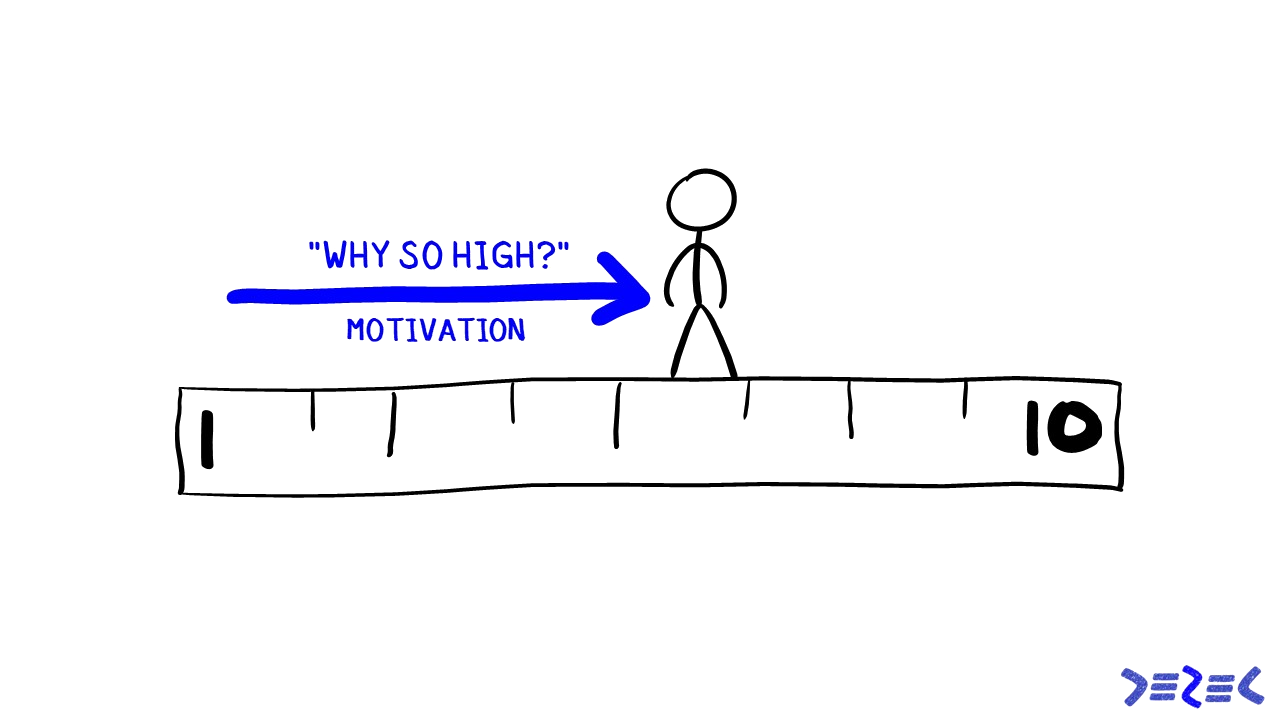Feeling unmotivated to make a change? Use this simple tool to find out why


Have you ever felt unmotivated?
You just can't find the motivation to exercise, read that book, study, stick to the diet, or spend time making memories with your kids.
Would it help you to know, you aren't unmotivated at all?
The truth is, you're simply more motivated to do something else.
Motivation comes in different forms, can be positive or negative, and can originate outside or inside us.
Breaking this down can give you some insights into what motivates you and how you can make the changes you've been trying to make.
So, what is motivation?
Motivation, at its core, is why you do something.
It's the reason behind your behaviour.
Nobody is unmotivated.
If it ever feels like you're not motivated, it simply means that you're more motivated to do one thing than another thing.
Have you ever bought a piece of gym equipment, and let it gather dust? Or chosen to eat something unhealthy, like chocolate cake, rather than something healthy, like broccoli?
I might not feel motivated to go for a run. But that's not because I don't have motivation. I just have more motivation to sit on my couch and surf YouTube.
In all these examples, you’re abandoning good intentions, being guilty of inaction, and opting for immediate gratification (dopamine) instead of long-term growth, health and integrity.
One way to think about motivation is with the acronym "DARN."
"D" is for desire.
This is what you want or don't want.
I might want to be in shape. I might also not want to lift weights.
"A" is for ability.
This is how well you can or can't do something or how confident you are in your ability.
I might want to compete in an Ironman Triathlon, but don't have the ability to do so. Or, I might have the ability to cut out processed sugar from my diet, but lack the confidence that I can do it.
"R" is for reasons.
There may be reasons for you to do or not do something.
If my doctor told me to stop eating high-cholesterol foods, I would have at least one reason motivating me to cut out those kinds of foods.
"N" is for need.
This is how important it is for you to do or not do something.
If I need to get a new car to get to work, it's important for me to go car shopping - motivating me to start looking.
Looking at your behaviours through these lenses can help you identify areas where you may be getting stuck.
Maybe you know you need to do something (N), likely because you have several reasons (R) to do so. You might even have confidence that you could (A) if you decided to do it. But if you don't really want to (D), you might not be able to. Addressing which of these factors either moves you toward or away from what you want to accomplish can be insightful.
Go versus 'no motivators'
In addition to these "DARN" factors, there are other ways to think about motivation. There are motivators that are things you don't want; things you want to avoid.
These are what psychologist William Miller calls "no motivators". It's a potential future or outcome you don't want to have happen.
- I don't want an undignified retirement and to be dependent upon others in my older years; therefore, I'm motivated to take action now to save and invest wisely for the future
- I don't want my children to suffer when I'm gone; therefore I'm motivated to have the right planning and safety harness in place
- I don't want to want to waste my life and die with deep regrets; therefore, I'm motivated to live in line with my values
'No motivators', also called 'avoid motivators', are about running AWAY from something.
It's easier for humans to articulate what we don't want, than what we do.
And yet, those who do know what we want have found another type of motivation, 'go motivators'.
This is about a potential future or outcome that I want to see happen.
- I want to be financially flourishing; therefore, I'm motivated to take action and address important matters such as investing diligently
- I want my children to have a great education and start in life; therefore I'm motivated to have the right planning and safety harness in place
- I want to make the most of this life that I've been given; therefore, I'm motivated to live in line with my values
'Go motivators', also called 'approach motivators', are about running TOWARD something.
Intrinsic versus extrinsic motivation
Regardless of what we want or don't want, how much confidence we do or don't have, what reasons there are, or how important we perceive a change to be, and regardless of whether we're running toward or away from something, there's another level of motivation.
Whether the motivator is extrinsic or intrinsic.
Extrinsic motivation is something that originates outside of us. It's something that motivates us only because someone or something out in the world exists.
If that "thing" out there in the world didn't exist, I wouldn't have that motivation.
For example, I might want (desire) to get a bonus (go), or want (desire) to avoid a floundering retirement (no), I might be motivated to move to a new area and take a new position.
Yet, if the only reason I'm considering a move is for more bonus or if my retirement was on the line, then I'm extrinsically motivated to make this move.
Extrinsic motivation can work; it's just that if we're motivated extrinsically, anything will stop us.

Intrinsic motivation originates inside of us.
It's a fire that burns in us. This is motivation because it's who we are. If we're motivated intrinsically, then we'd do it even if we couldn't tell anyone about it.
When we're motivated intrinsically, nothing will stop us.

What motivates you?
The tricky thing about motivation, is that it's not just a single thing.
You aren't just motivated for one thing at a time.
We're motivated for multiple things across multiple areas of our lives. These parallel motivations mean we have a web of motivation inside us.
Sometimes, two (or more) of these motivations point to opposite sides of the same thing. I might be motivated to go to the gym and, at the same time, be motivated to watch another show on Netflix.
I might be motivated to grow my wealth by investing a lump sum in the greatest companies of the world (the stock market) and, at the same time want a feeling of 'safety' by holding my money in cash, whilst it's future purchasing power is slowly eroded away by inflation.
This uncomfortable feeling of being motivated in different directions is called ambivalence, and even though it's uncomfortable, it's a normal part of life.
If you know there's a change you want to make but haven't been able to get yourself to do it, it could be worth looking for the competing motivation.
Once you know what motivates you, you can use some tools to draw out the motivation that points toward the change you want to make.
One such tool is called a change ruler (or a scaling question).
Think about the change you want to make. Now, on a scale from one to ten, ask yourself how likely it is that you'll do it (instead of likely, you can use "how important it is," "how ready you are," "how confident you are that you'll do it," and so on).

It doesn't matter what the number is.
If it's high, great. If it's not as high as you hoped, that's okay, too. The absolute value doesn't much matter at this point. You're not trying to force a particular number. Nor are you trying to induce shame or guilt for not being higher.
You're not lying to yourself, either. This works best if you use the first answer that comes to mind without filtering or censoring yourself.

Now, ask yourself why the number you picked is so high.
If you picked a 6, ask why you didn't leave it at 5, or 2. If you picked a 10, ask why you picked the top number instead of leaving it at 9.
If you picked a 3, ask why you didn't pick 1.
By asking why you picked a higher number, you're drawing out your motivation for making this change. Write down your answers. Think about those answers. See if it changes anything.

Motivation is a simple concept, but it has more facets to it than it seems.
Thinking about your motivation through these lenses can shed some insights into what your true motivations are and how you might be able to tap into your existing motivation to make the change you've been thinking about.
When it comes to your future financial success, the results might just amaze you.

